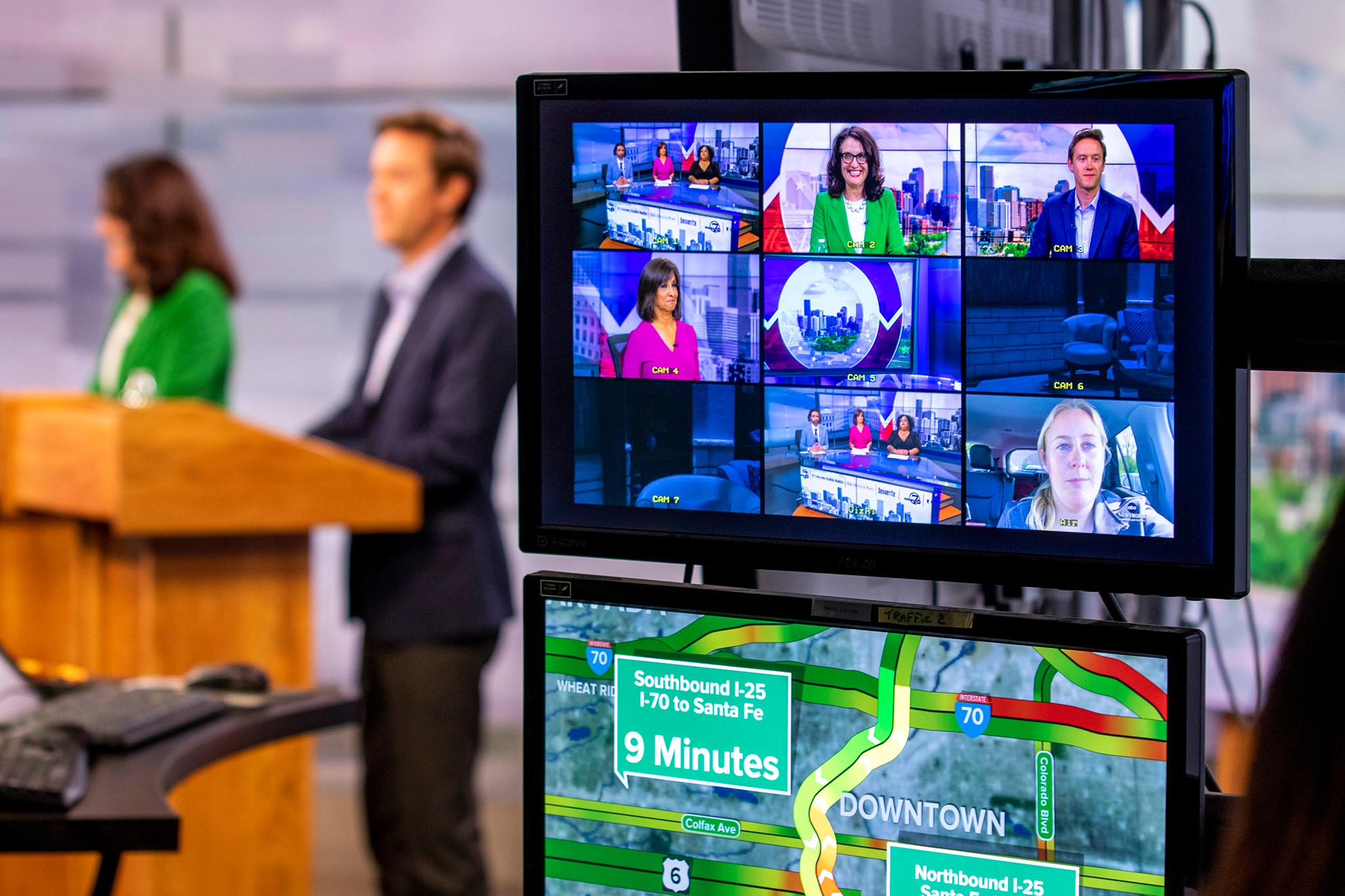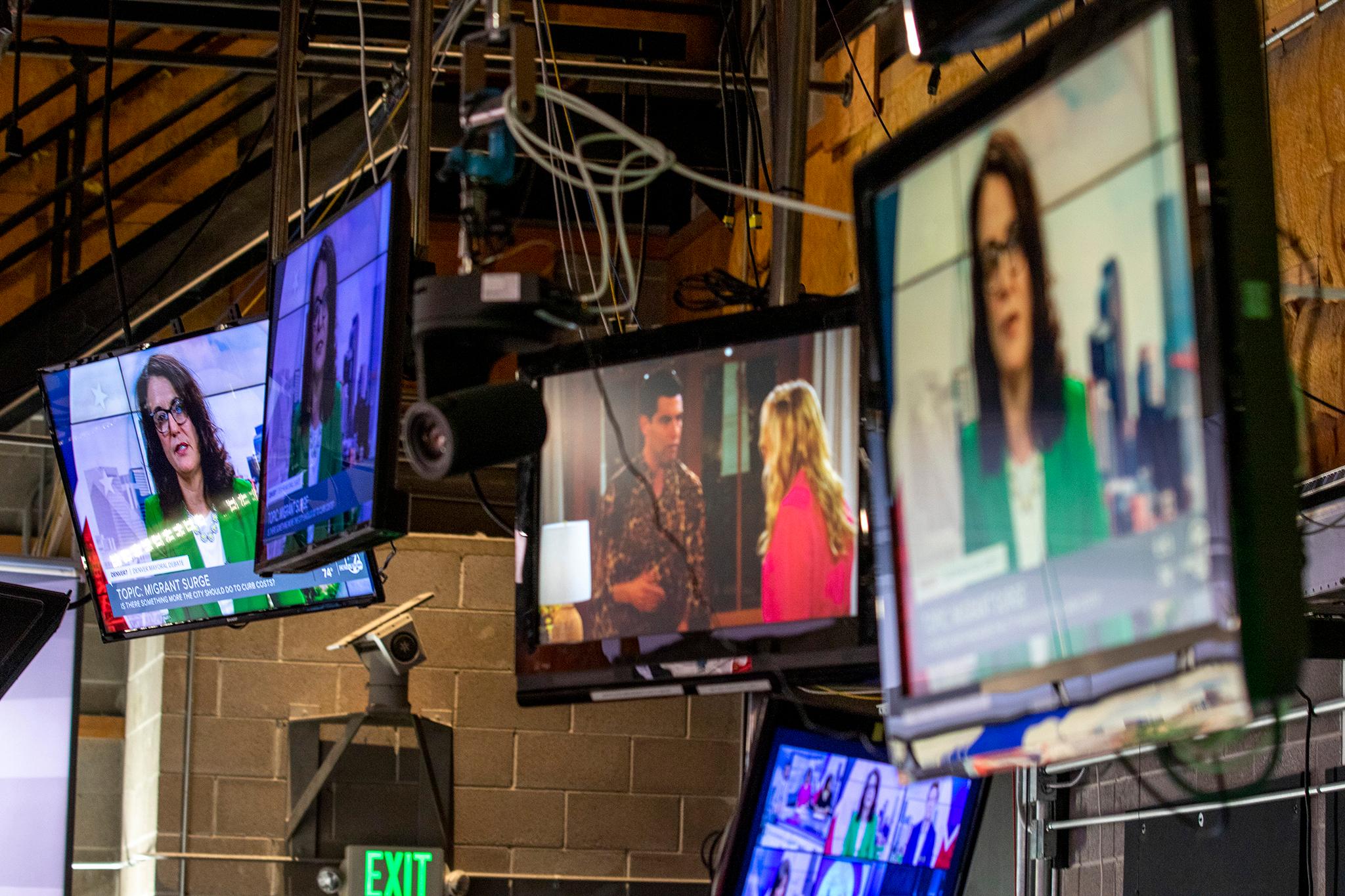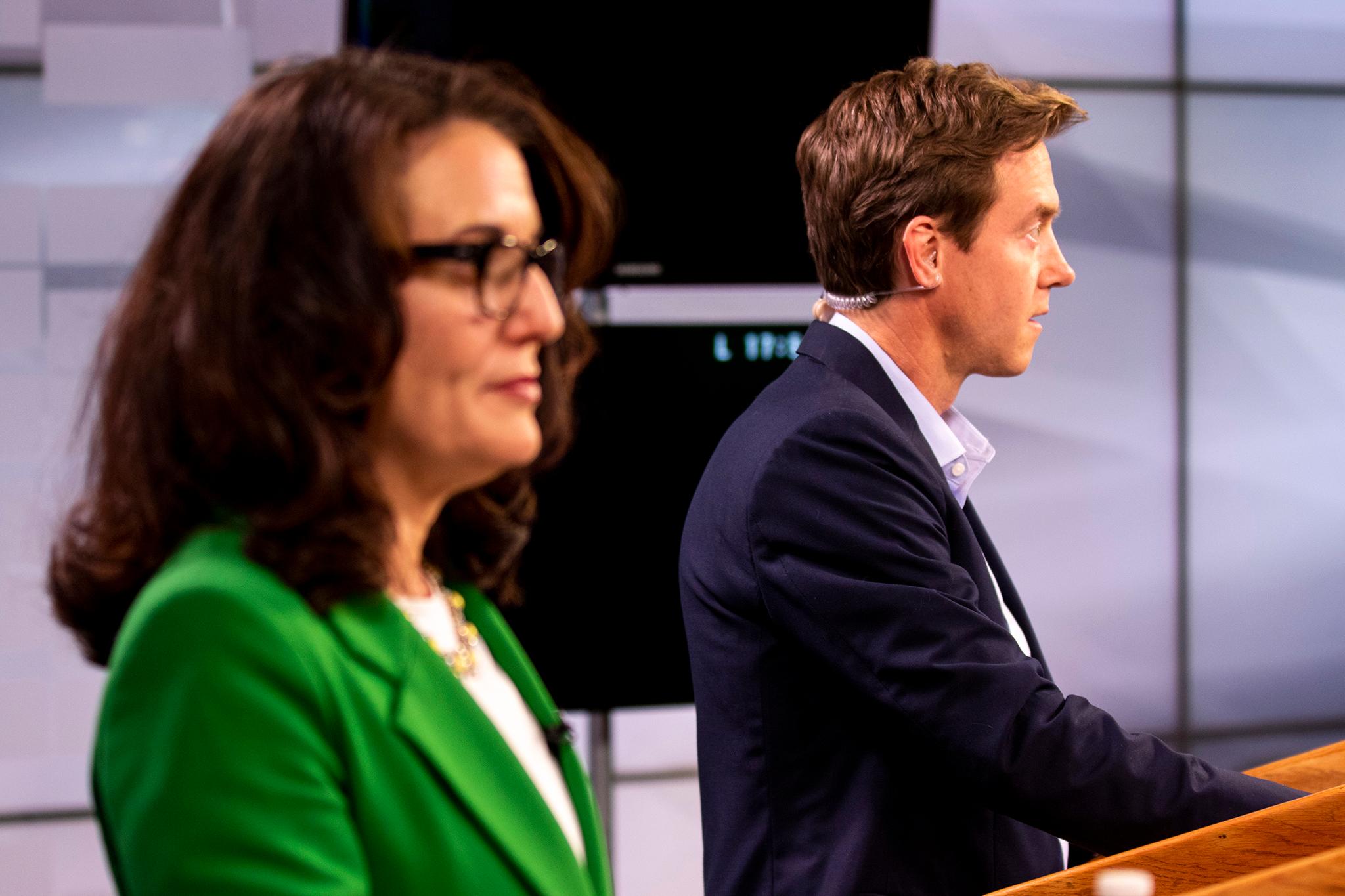As the June 6 runoff election approaches, Kelly Brough and Mike Johnston are making their final pitches about why they're the best candidate to be Denver's next CEO.
Both mayoral candidates are seen as centrists. Both have the blessing of the business and real estate establishment. Both have deep ties to people of wealth and power. Both have had recent high-salary jobs. Both have been endorsed by past Denver mayors: Federico Peña put his support behind Johnston, while Wellington Webb is backing Brough.
Denverite teamed up with the Denver Post and Channel 7 for a Tuesday night debate to help voters figure out what the differences are between these two candidates and which one is the best person to lead.
Here are some big takeaways from the night.

Both candidates played it pretty safe.
When it comes to leading the city, both candidates share analysis of the problems and the solutions. To save the city money, they'll work with nonprofits, metro governments, the state and the feds on fixes. When the mayor doesn't have jurisdiction over an issue, they'll collaborate with the governing bodies or agencies that do.
Both say they will have diverse cabinets, including women of color, and that their decisions will be informed by diverse groups of stakeholders. Both will fight violence by giving kids things to do after school and during summer breaks. Both want public and private sector workers to return to downtown to increase foot traffic, and neither seems particularly committed to requiring that city workers return to the office.
Both say they'll address public safety concerns by filling vacant police force jobs and increasing the number of mental health professionals available to answer emergency calls that don't require an armed response. Neither committed to increasing Denver Police Department funding.
The list of similarities goes on.
One slight difference we noticed is in how they frame where they'll build income-restricted housing.
Both will focus on building income-restricted housing near transit. Johnston says he'll do so in every City Council District.
Brough took that a step further and committed to building income-restricted housing in every neighborhood in the city. That would include wealthy neighborhoods with exclusively single-family homes that have been resistant to such development.
What will the candidates do when neighbors push back to income-restricted housing projects in their neighborhoods?
Neither had a direct answer.

One BIG difference: They doubled down on whether they would arrest Denver's unhoused neighbors.
Johnston, who supports Mayor Michael Hancock's Urban Camping Ban, categorically rejects the idea that his administration would arrest people for being homeless, though he did tell Denverite back in March that he would "in rare cases" institute mandatory holds on people with mental health or addiction crises.
He would instead focus on providing them with housing, he said.
Brough, who plans to end all encampments in her first year, said her administration would arrest homeless people as a last resort and take them to a facility like Denver Cares and then push them toward services and housing. She, too, would focus on housing people.
The candidates have a couple of different takes on city spending issues.
On Denver's current approach to snowplowing, Brough supports the system as is and Johnston would change it.
Johnston would oppose using taxpayer money to support a new stadium for the Broncos. Brough would oppose doing so without a vote of the people.
They would both punt managing the arrival of an increased number of migrants to other entities.
Both said they would want asylum seekers to be able to work and want the federal government to stop blocking that. Asylum seekers with pending cases are able to apply for work permits, but it can take a while before they are eligible or get them.

Mayors have no direct power over speeding up work permits, but both said they'd be advocates. They want border communities to do a better job routing migrants to the places they actually want to go. Neither has power to do that, either, though Johnston floated the idea of helping charter buses directly from El Paso, where many migrants have come from, to their desired destinations instead of coming to Denver. They'd work with nonprofits on the issue.
How about addressing the shortage of childcare centers?
Brough said she'd push for the reauthorization of the Denver Preschool Program and partner with early childhood educators and the state. She'd also address the low pay of those educators. How? Partnerships.
Johnston said he'd work to convert vacant Downtown office spaces into childcare facilities and train more people to enter the field. He did not address pay at all.
On RTD and transit
Both candidates are enthusiastic about finding ways to increase RTD use. Brough, a bike commuter of 30 years, says she'll improve RTD by supporting Bus Rapid Transit along Colfax Avenue, Colorado Boulevard and Federal Boulevard. She would encourage RTD to make riding free for high school and college students and push more businesses to embrace the EcoPass system.
Brough would also analyze what is and isn't working about the city's current Vision Zero plan to eliminate traffic deaths by 2030 and borrow best practices from cities that have seen a reduction in such deaths.
"I really think we have to do a quick check to make sure we're making the right investments in the right place," Brough said. "I don't mean to slow it down. I mean to actually speed it up, so that we get this right, and we are keeping people safe, and our kids feel safe riding to school, and we feel safe running errands or riding to work. And without doing that we are never going to address the challenges we face in transportation or air quality or our environment."

Johnston said he supports more protected bike lanes, and wants to push to make it free for Downtown workers to use RTD. He wants to increase ridership, but he also made it clear that not everybody will bike or use transit. For example, him.
"There are a lot of folks like me, with three kids," he said. "We've got to run a lot of errands and aren't able to always use public transit to get to and from the next one. So we do have to make sure that we have accessible and easy-to-navigate roads for cars."
A few other questions neither candidate directly addressed...
How would a Johnston administration determine who gets first pick of the tiny homes he plans to build for unhoused residents?
He had no direct answer.
How would they avoid displacing current residents when building new income-restricted housing in neighbors?
They both explained how their housing policies would serve those who needed assistance but did not speak to the concern raised in the question of displacing longtime residents.
How would they take the burden of paying for migrant services off of local nonprofits that have been shouldering direct costs?
Neither directly said, though both indicated working with nonprofits would be a key part of their fix.
They do agree on sports.
More pickleball? Yes.
Will the Nuggets win the Championship? Yes.
Watch the full debate here. And remember you can find our runoff edition voter guide right here.












